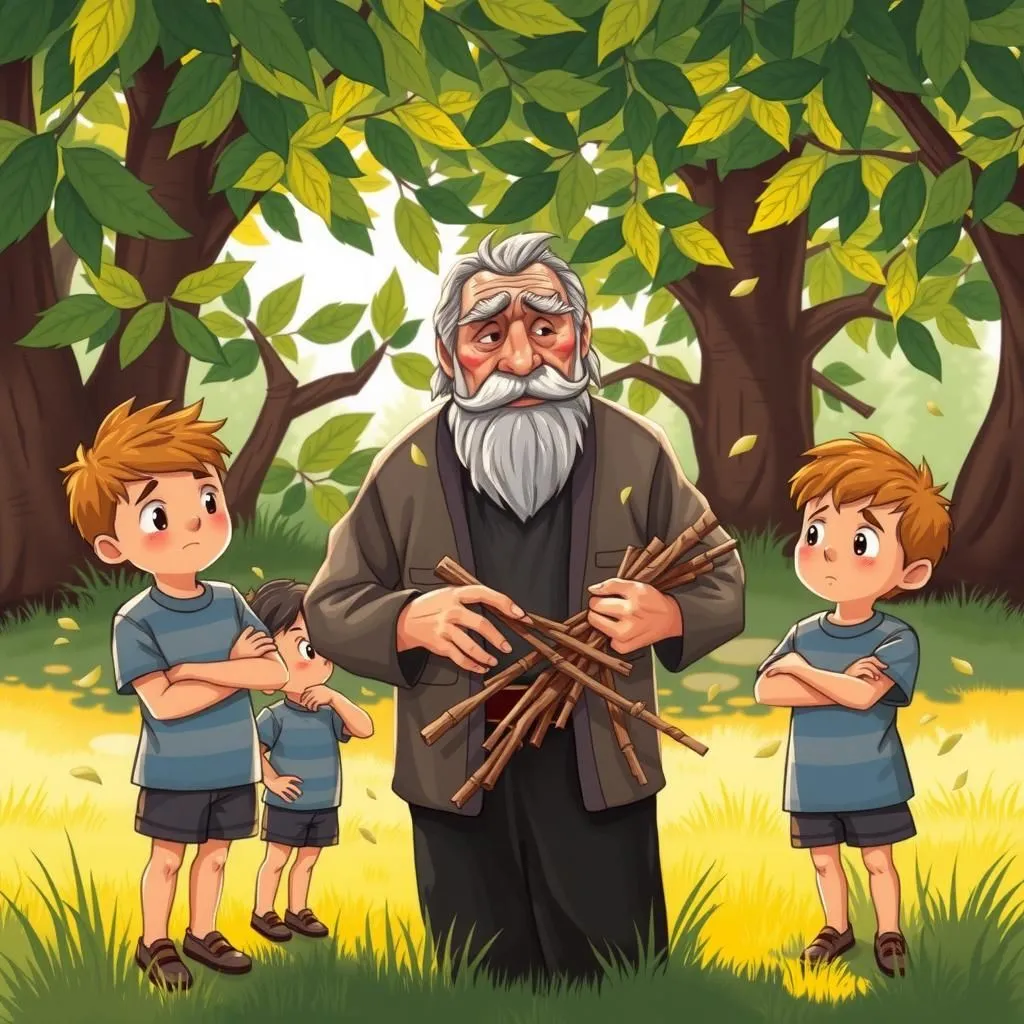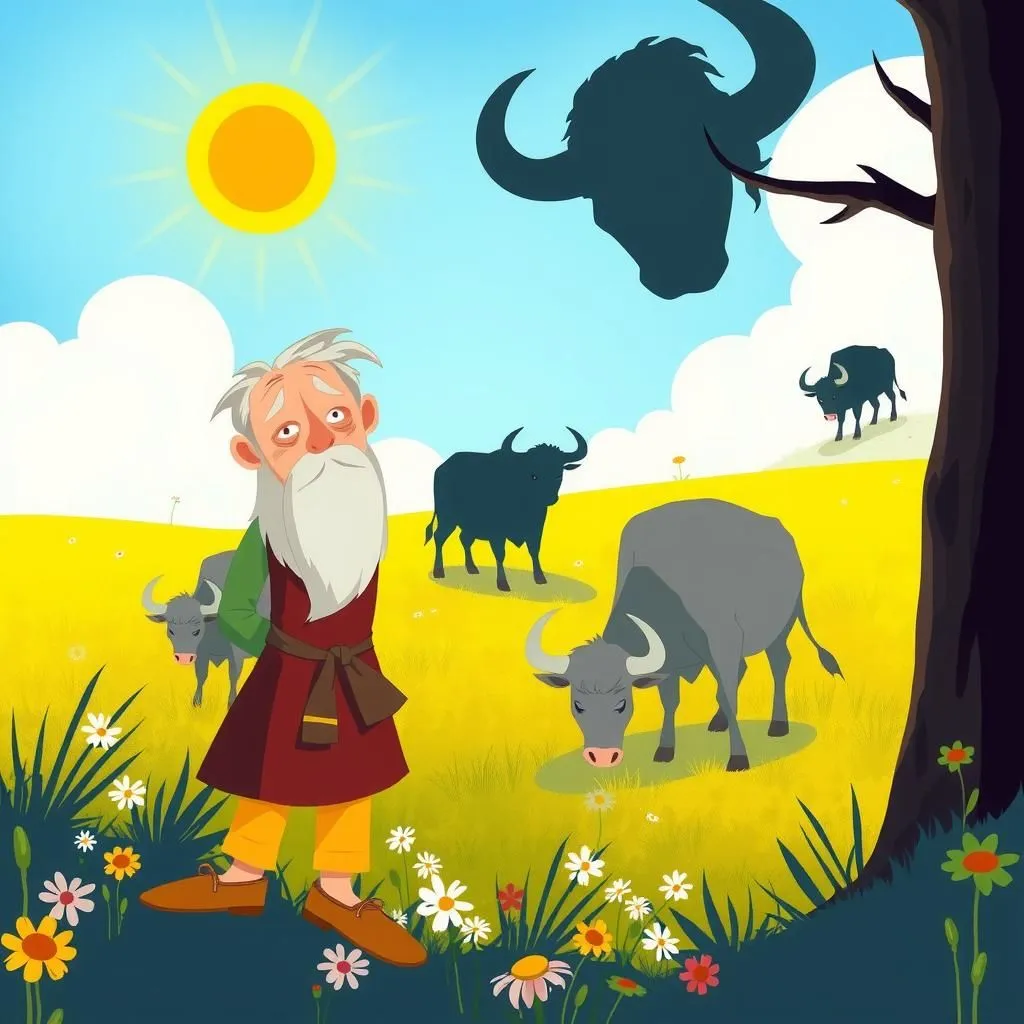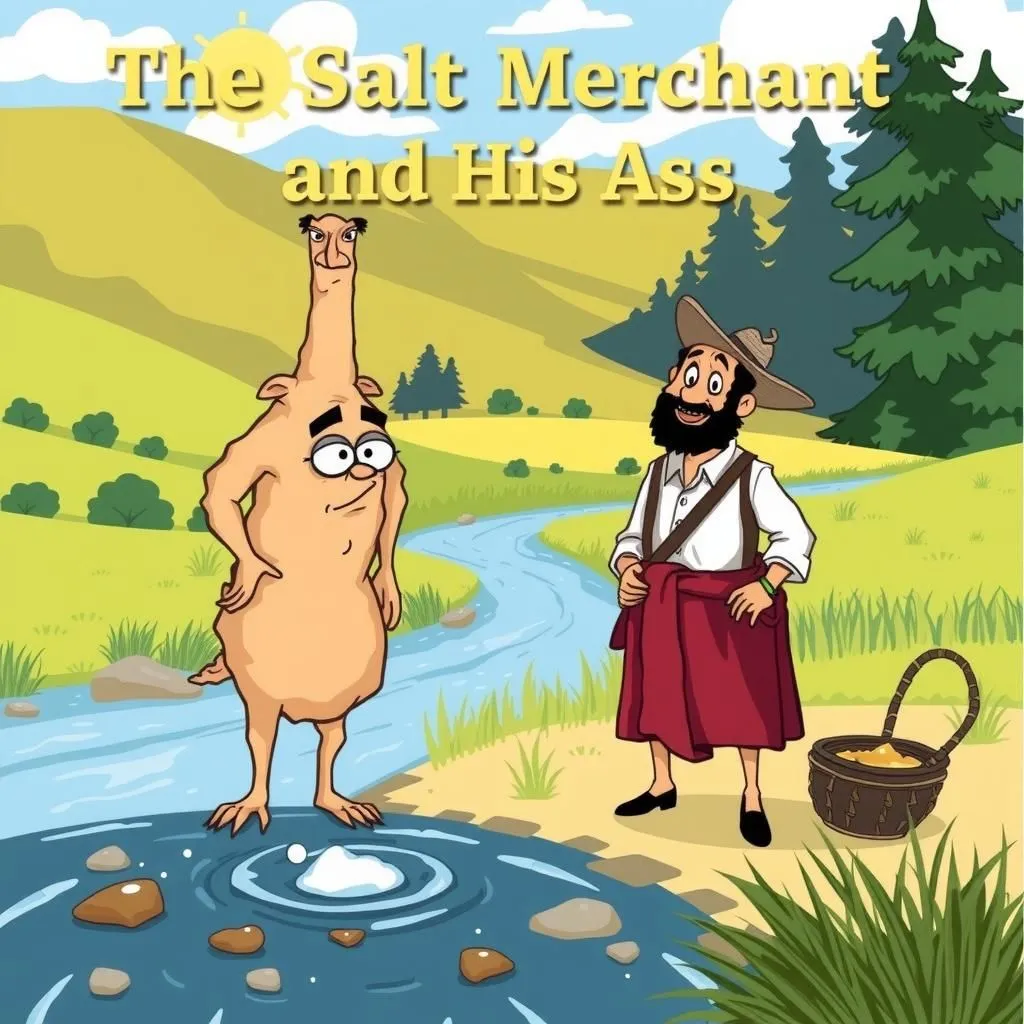
The Old Man and his Sons
In this engaging moral tale, an old man teaches his quarrelsome sons a best moral story about the power of unity using a bundle of sticks that they cannot break together. He illustrates that while the sticks are strong as a collective, they are easily broken when separated, reinforcing this simple lesson from stories by punishing each son with a single stick. This short and moral story emphasizes the importance of family unity and cooperation.


